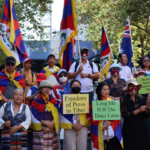NSW Police to Pay for Wrongful Detentions

Administrative mistakes are an unfortunately common occurrence in every day life – and in most situations, they cause a small amount of grief and frustration before being quickly rectified.
But following what was arguably the most serious administrative error of late, NSW Police will need to pay $1.85 million in compensation to at least a hundred young people who were wrongfully detained due to an embarrassing bungle with an internal police database.
Kids Locked Up For Doing Nothing Wrong
The trouble started as far back as 2007, when young people were being locked up for allegedly breaching bail conditions – despite having those conditions either dropped or varied, so that they no longer applied.
In one case, a 13-year-old Aboriginal boy from Wagga Wagga, Reginald Simpson, was arrested at night while visiting his Aunty in Cowra. The arresting officers informed Reginald that he was being arrested for breaching his bail, which allegedly required him to stay within Wagga Wagga at all times.
A recorded conference between Reginald and his lawyers reveals that he was accosted by “at least 3 or 4” police officers and taken into custody before he had the chance to obtain his belongings – including shoes, shirt and an asthma puffer, which he used to manage his serious respiratory condition.
Reginald told his lawyers that he was ‘scared, knowing that they would not let [him] have [his] puffer,’ and that despite his repeated requests to obtain his belongings, he was handcuffed and transported to Orange Police Station – about an hour away – in the back of a paddy wagon.
Police failed to tell Reginald’s mother what had happened, and initially denied that he was in custody. It was only when she asked them to check the cells that they realised he was there – hours after being taken into custody.
In another case, a 17-year-old girl named Tara El-Masri described being approached by police while walking down the street, before being arrested for breaching bail. Tara told the officers that she was not on bail – and that her mother had the court papers to prove it.
Police attended her house and Tara’s mother showed police the court papers confirming that her daughter was not on bail. But incredibly, police said that the papers were ‘unacceptable,” – or, as her mother stated, “that a court document meant nothing to these police.’
The situation remained unrectified and Tara was approached and harassed time and time again for breaching non-existent bail conditions.
Many other children have shared similar experiences to Tara and Reginald – they have been locked up by police illegally – even after receiving court confirmation that police were in the wrong.
PIAC to the Rescue
As time went on, more and more of these wrongful detentions were being reported.
Eventually, in 2009, the Public Interest Advocacy Centre (PIAC) stepped in and began providing legal representation to individuals who had been wrongfully detained – in many cases winning monetary compensation for the kids.
It soon transpired that the problem was due to a glitch in the Computer Operational Police System (COPS) – a software system used by police ‘to record information relevant to all victims, offenders and incidents that require police action.’ Information about a person’s bail conditions is also recorded on the system.
The glitch – which was not rectified for seven years – meant that updated information about a person’s bail requirements was never entered into the system – meaning that kids were being picked up for breaching old bail conditions.
This effectively paved the way for a class action, led by a law firm and the PIAC.
After four years in court, the class action was finalised earlier this week – with NSW Police being liable to pay $1.85 million in compensation to affected young people across the state.
On top of this, it is expected that police will have to fork out millions of taxpayer dollars in legal bills.
Irreparable Damage?
Although police have promised to rectify the damage by making compensation payments, their actions will have lasting or even irreparable damage.
According to the youths’ lawyers, police targeted already marginalised groups: with an estimated one third being identified as Aboriginal and a significant proportion coming from non-English speaking backgrounds.
Criminologists have warned that the problem could aggravate tensions between police and minority groups, and could have a ‘significant negative impact on how young people viewed the law and authority figures.’
Unfortunately, while the compensation will go some way towards easing the injustice experienced by these juveniles, money only goes so far.
It is hoped that the incident will encourage those who feel unfairly targeted by police to take a stance against injustice and fight to protect their rights.






